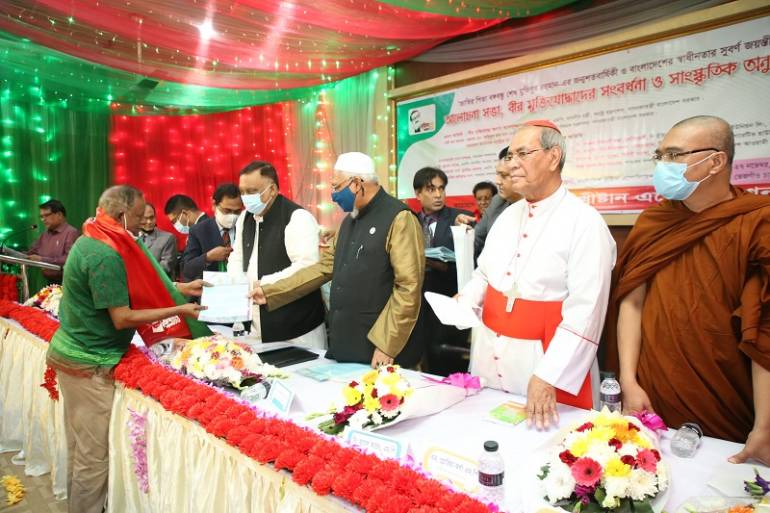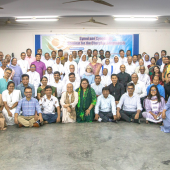Bangladesh Church celebrate Nation's Golden Jubilee

Bangladesh Church celebrated the Father of the Nation's birth centenary and the golden jubilee of the country's independence at Tejgaon Holy Rosary Church Community Center, Dhaka, on November 27.
Bangladesh Christian Association (BCA) led a forward-looking discussion and reception of heroic freedom fighters to mark the birth centenary of Bangabandhu Sheikh Mujibur Rahman, regarded as Bangladesh's Father of the Nation and fifty years of the country's independence.
Sheikh Mujibur Rahman signed a declaration making East Pakistan the sovereign and independent country of Bangladesh on March 16, 1971. It led to a nine-month Bangladesh Liberation War, which claimed the lives of up to three million people and hundreds of thousands of women raped. Although the casualty figures are disputed, millions were displaced.
The struggle for Bangladeshi Bengali rights started after Pakistan gained independence with two contiguous territories known as West Pakistan (today's Pakistan) and East Pakistan (today's Bangladesh). After a nine-month war on December 16, 1971, Bangladesh became independent.
Bangladesh became independent because of Bangabandhu's sacrifice. He called for a war of liberation, and under his leadership, the country became independent.
In the past 50 years, Bangladesh has come a long way in developing economics, culture, and education, among others.
Home Minister Bir Muktijoddha Asaduzzaman Khan Kamal, MP, was the chief guest, State Minister for Religion Md. Faridul Haque Khan, MP and Cardinal Patrick D'Rozario, CSC, were guests of honor. Nirmal Rozario, President of the Bangladesh Christian Association, presided over the function.
Over a hundred freedom fighters, including Christians, were honored on occasion. The event showed a documentary titled 'Bangabandhu's Golden Bengal.'
Radio Veritas Asia (RVA), a media platform of the Catholic Church, aims to share Christ. RVA started in 1969 as a continental Catholic radio station to serve Asian countries in their respective local language, thus earning the tag “the Voice of Asian Christianity.” Responding to the emerging context, RVA embraced media platforms to connect with the global Asian audience via its 21 language websites and various social media platforms.














